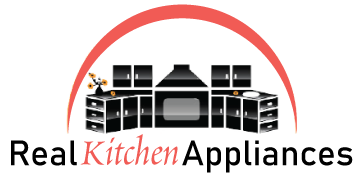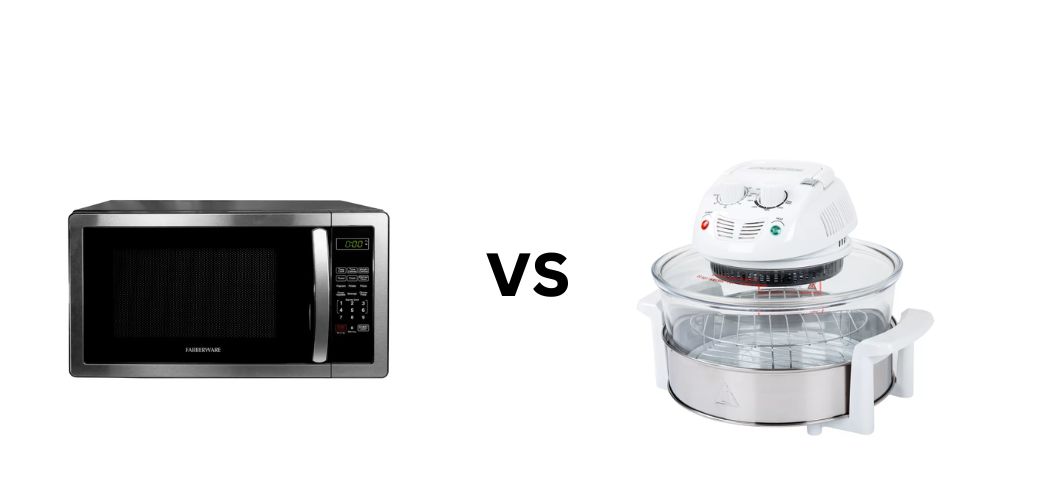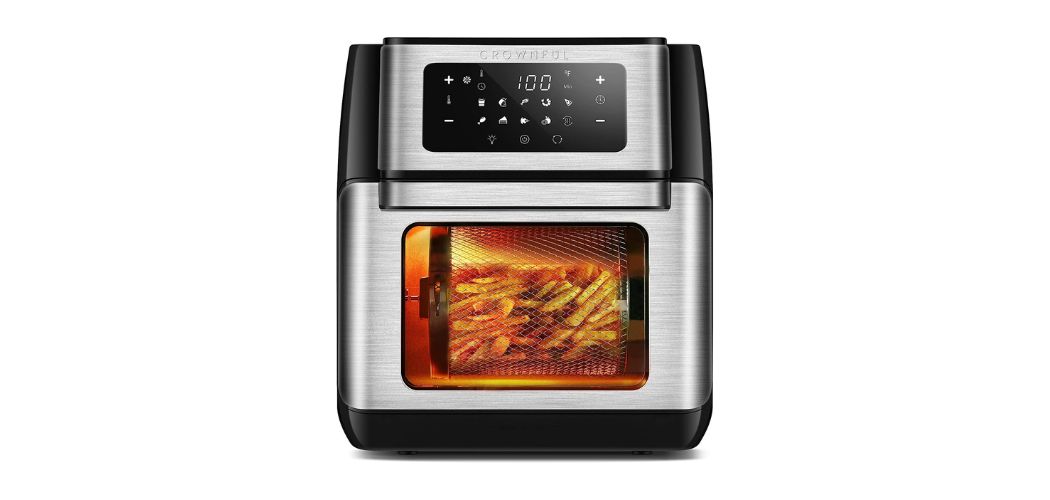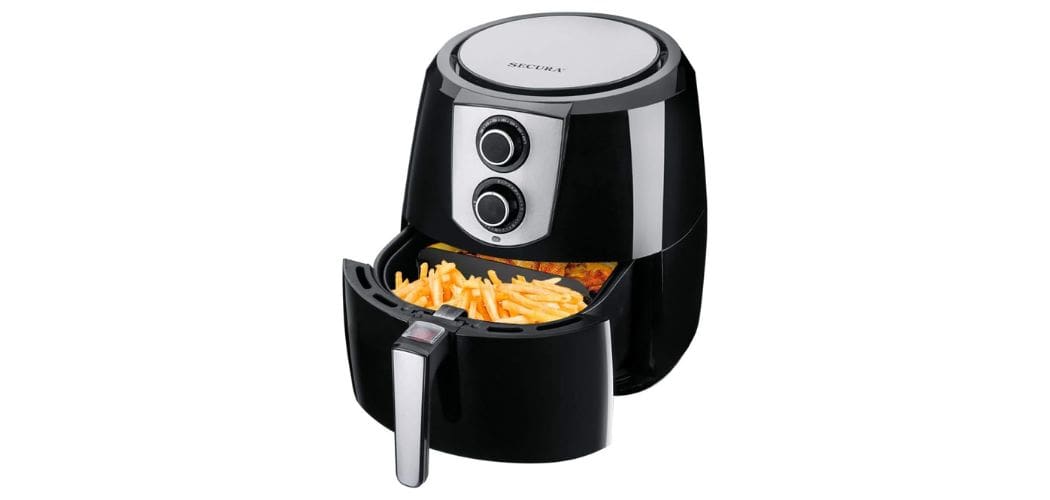The invention of microwaves truly is a blessing for modern families. But innovation and invention never stop, and there are many devices that claim to replace the cooking efficiency of microwaves.
Halogen ovens are making a lot of buzz these days as a healthier cooking alternative to microwaves. But is it truly better than microwaves? And between microwaves and Halogen ovens: which one is the best?
To find the answer, you first need to know the difference between microwaves and halogen ovens. In this article, we’ll compare both devices to help you decide which one will suit your needs best.
Table of Contents
How Do Microwave Ovens Work?
Microwave ovens work by using microwave radiation. These devices use tiny radio powers to pass the heat and cook food. Microwave ovens can cook food six times faster than traditional cooking because they channel heat energy directly to food in the form of molecules.
Inside the microwave ovens, there is a heat-generating device called magnetrons. When we turn on the microwave, the magnetron takes electricity from the power outlet. It converts electricity into high-powered radio waves.
The magnetron pierces these heat waves into the food.
When the food inside the microwave spins, it gets hit by these heat waves and gets cooked evenly.
In simple words, the process of microwave cooking is a lot similar to the sun rays hitting our face.
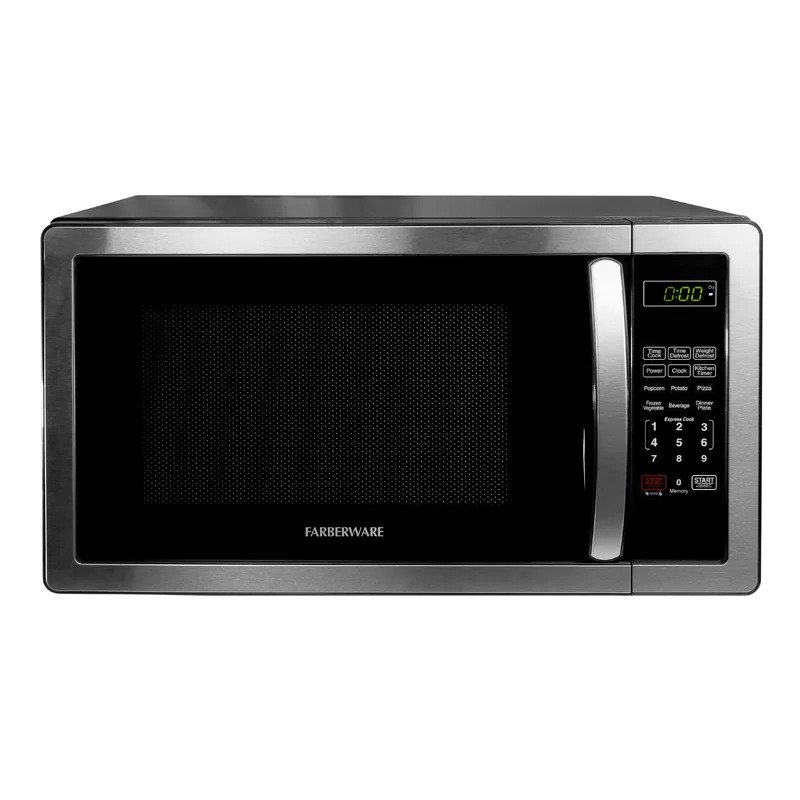
How Does Halogen Ovens Work?
Halogen ovens work by combining a halogen heating element and a fan. The halogen lamp is the heating source of halogen ovens. The halogen bulb/lamp is a type of incandescent light bulb that generates heat, and the fan circulates this hot air around the food to cook it evenly.
This type of cooking depends on infrared energy and radiation to cook food evenly. Infrared radiation can transfer a large amount of radiation in less time. Such energy induces water molecules and organic compounds like- fat, starch, and protein to vibrate and kill microorganisms. It cooks food perfectly and gives it a crispy surface.
You can use halogen ovens for baking, grilling, roasting, steaming, dehydrating food, and lots more.
Microwave And Halogen Ovens: Which Cooking Appliance Is Better For You?
As you can see, both devices use heat waves or radiation for cooking food evenly. However, there are significant differences between the two appliances in terms of cooking procedure and output; let’s read further to understand them well.
Cooking Efficiency
Halogen ovens cook faster than microwave ovens. Besides, the halogen lamp is more efficient for cooking things like steamed vegetables and proteins. Microwave ovens sometimes leave cold or uncooked spots, which is not the case with halogen ovens.
Besides, cooking versatility is more in halogen ovens than in microwaves. Halogen ovens can bake, thaw, reheat, grill, and do much more; microwaves often lack that.
Heating Source
As stated, microwave ovens use electromagnetic waves for cooking food, whereas a halogen oven uses a combination of infrared and convection heat.
Also, halogen ovens have a wider temperature range than microwave ovens, allowing more versatile cooking.
Cooking Outcome
With halogen ovens, you can cook your food just the way you like it. Whether you like your food juicer and crispier, and your meat rare or medium rare, it is in your control.
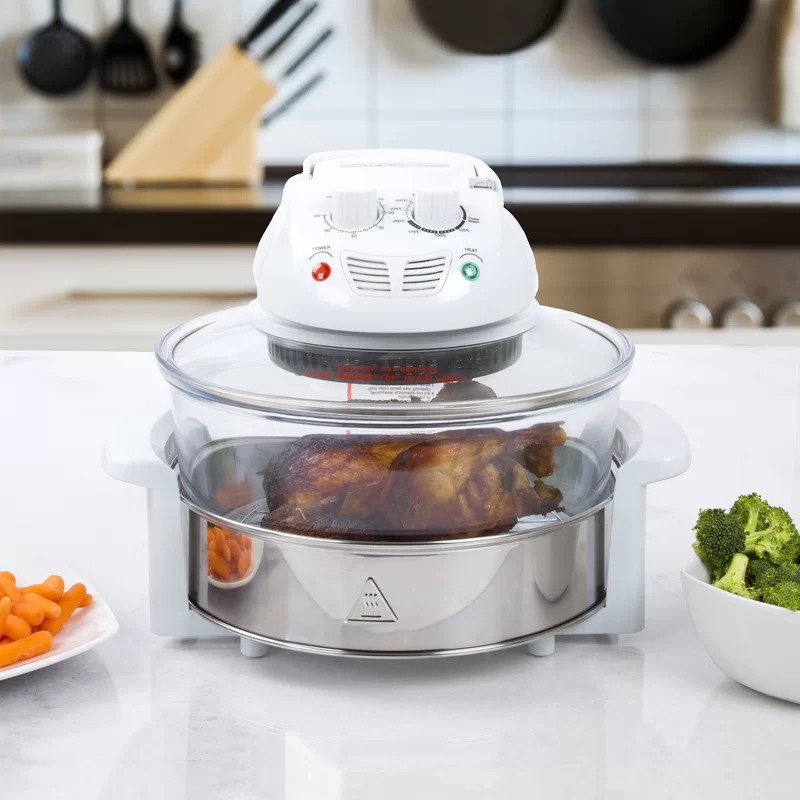
The way a halogen oven cooks food gives a taste and result similar to traditional cooking. On the other hand, there is a constant problem with the microwave oven – it makes your food very dry.
Besides, the microwave oven sometimes does not cook food evenly. You may have to put your food for another round in the oven.
Size Difference
Halogen ovens are usually bigger than microwave ovens. They have both positive and negative impacts. If space is an issue, accommodating a halogen oven at the countertop may be an issue.
But it’s big size allows you to accommodate big plates, larger whole chicken, and bigger portions of food in one go. So big families with enough kitchen space will benefit from the halogen kitchen more.
Price
It may look like I’m Team Halogen Oven, but the truth is halogen ovens are cheaper and better alternatives to microwaves. You’ll find halogen ovens for as cheap as $50 and even cheaper.
A microwave oven will cost you around $100. Price is not an issue if the quality isn’t compromised, but as I already explained, halogen ovens’ cooking efficiency and results are better than microwaves.
Frequently Asked Questions
Can I Bake Bread In Halogen Ovens?
Halogen ovens don’t do a perfect job at baking bread like ovens, but you may come up with better results with continuous practice and experiments.
Are Halogen Ovens And Air Fryers Similar?
Air fryers and ovens can cook healthier food with less oil or greasing. But these two are not identical appliances. Air fryers consume less energy and are smaller than halogen ovens.
Also, halogen ovens have a clear bowl lid that lets you clearly see the cooking progress, but with air fryers, you have to open the lid to see the cooking status.
Halogen Oven vs. Microwave Ovens: Which Consumes More Energy?
Halogen ovens consume 50% less energy than microwave ovens. The halogen lamp is more energy efficient compared to the radiation used by microwave ovens. They need less cooking time, so they consume less energy than any standard microwave oven.
Takeaway!
So microwave or halogen oven: which one is the best? Between the two cooking appliances, halogen ovens seem to be clear winners. They need less energy, cook better quality food, and the radiation is less harmful than microwaves.
However, halogen ovens have their own limitations, like when it comes to baking bread, and they also take up more space than microwaves. Hence, consider your cooking needs before buying one.
